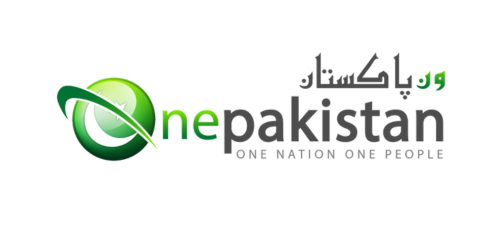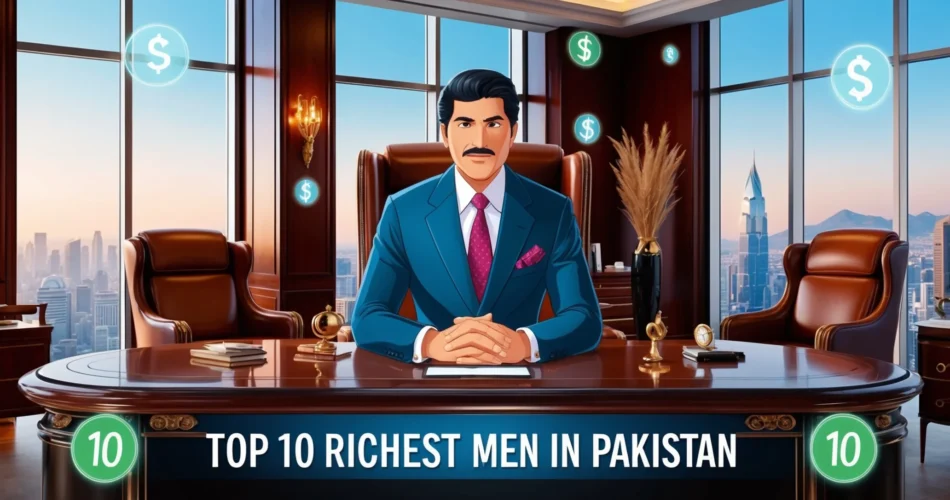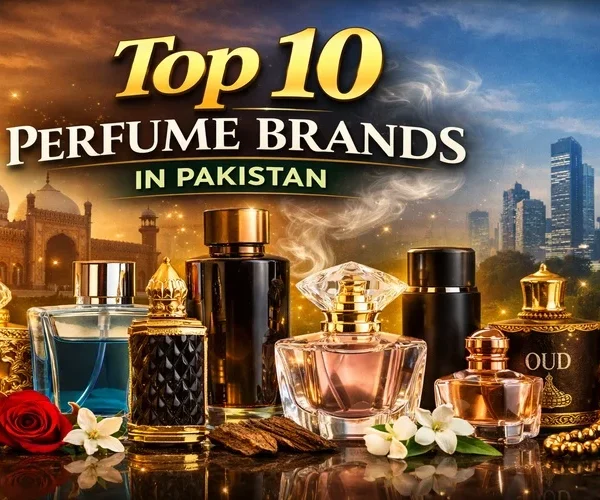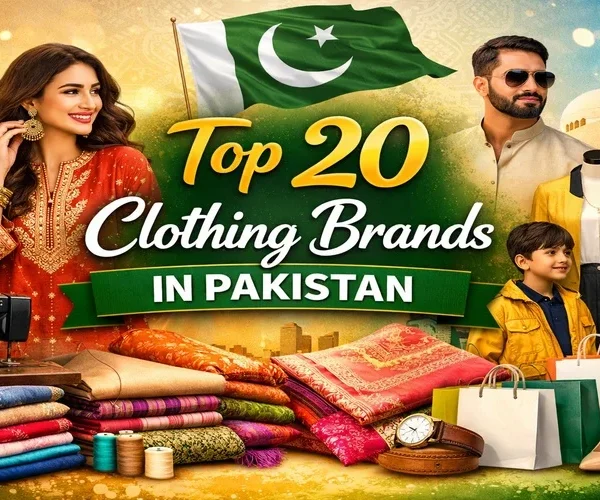Numerous issues including terrorism and a lack of continuous development had held Pakistan back from achieving its progress. Nevertheless, the nation has produced some of the richest men in the world. The country’s landscape and resources abound with opportunity from which to get rich, and cheap and plentiful labor keeps costs down, which is good for businessmen who need a lot of workers. With the top 10 richest man in Pakistan all making money from their businesses, or investments, their wealth is very high which can place them in the same league with the elites in Pakistan.
Although the bulk of Pakistan’s population contains middle to low income group but there are people who have struggled their life and amassed it to big wealth. The Pakistani met a few of the top 10 richest man in Pakistan making the presence of Pakistan as a growing country leaving the litmus test for development. If anyone managed Pakistan’s resources with full devotion and hard work, anyone can be a billionaire or millionaire in the country.
List of Top 10 Richest Man in Pakistan
Shahid Khan – $8.5 billion
Shahid Khan, often regarded as the Richest Man in Pakistan, emigrated to the U.S. and is a self-made billionaire whose inspiring rise from poverty to riches is a remarkable tale of a man who struggled his way to be numbered among the world’s wealthiest individuals. He is the founder of Flex-N-Gate, a firm that builds auto parts, specializing in bumpers for trucks and cars. Thanks to his innovative approach and dedication to quality, he earned significant contracts with major automotive companies and elevated his business to great heights.
Apart from his business, Khan is also famous for his philanthropy. But he gave millions too many causes, mostly in education and community development. He also funded scholarships and support programs which encourage higher education for under privileged youth. Khan’s story is regularly used as an example of entrepreneurship and determination of how hard work and vision can take an individual to enormous success.
Mian Muhammad Mansha – $5 billion
Pakistan’s most influential industrialist and often regarded as the Richest Man in Pakistan, he is the chairman of the Nishat Group, with businesses in sectors such as textiles, banking, cement, and power generation. Under Mansha’s leadership, Nishat has grown to become one of Pakistan’s largest and most diversified business groups. Besides building his wealth, his investments have contributed to the economic growth of the country.
Besides being a successful business man in life Mansha remains committed to philanthropic activities through the Nishat Group Foundation under which he participates in education and healthcare initiatives. He believes that a return to and growth of society is only achievable through social responsibility. Mansha continues to make his mark in business and philanthropy as a leading player in Pakistan’s industrial scene.
Anwar Pervez – $3.1 billion
Bestway Group is a chain of cash and carry stores across the UK, operated by Pakistani British businessman Anwar Pervez, who is sometimes mentioned among those vying for the title of Richest Man in Pakistan. He arrived in England in the 1960s, initially working as a bus conductor before venturing into business with a small grocery shop. An entrepreneur at heart, Pervez founded Bestway, which has since grown into one of the largest wholesalers in the UK, serving thousands of retailers and businesses. In addition to its wholesale operations, Bestway has substantial investments in banking through its ownership in Bestway Bank.
Hard work and resilience has been Pervez’s success story. His contributions in fields of business and community development have earned him many accolades amongst which is named as one of the most influential Pakistani abroad. His philanthropy too is spread across education and health care programs for communities in both Pakistan and the UK.
Asif Ali Zardari – $1.8 billion
Asif Ali Zardari is a famous Pakistani businessman and politician who held the office of President of Pakistan from 2008 to 2013. Often considered one of the Richest Man in Pakistan, his wealth primarily comes from his late wife, Benazir Bhutto, along with investments in agriculture, real estate, and the energy sectors. A career marked by both achievement and controversy, Zardari has faced a litany of corruption-related allegations but remains a key player in Pakistan’s political landscape.
While there has been a lot of rubbishing of Zardari, his reputation has been tied to several philanthropic works carried out by the Bhutto Foundation which is actively working to improve education and health care and bring prosperity to the marginalized communities of Pakistan. Dual role of the businessman and the politician together is a clear illustration of the large interplay between wealth and power in Pakistan.
Malik Riaz – $1.5 billion
Pakistan’s most influential real estate developer and often regarded as the Richest Man in Pakistan, Malik Riaz is best known for building Bahria Town, a large private real estate project featuring residential localities, commercial properties, and entertainment facilities across Karachi, Lahore, and Islamabad. He contributed to transforming urban landscapes and made a slew of options for affordable housing possible for many Pakistanis. Riaz has had an entrepreneurial journey, starting with limited resources but capitalizing on the opportunities in the booming real estate market.
Apart from his real estate businesses Malik Riaz is also engaged in philanthropy through Malik Riaz Foundation. His initiative is to educate Pakistanis, provide health care to the needy and relief efforts in Pakistan. Though still embroiled in legal wrangles on government land acquisition practices, Riaz is a big player in Pakistan’s real estate sector.
Nawaz Sharif – $1.4 billion
Nawaz Sharif is a Pakistani politician who has gone on to become Prime Minister three times between 1990 and 2017. His family is from a wealthy background with deep business roots; his family’s company, Ittefaq Group, produces steel and construction materials. Often considered the Richest Man in Pakistan, Sharif’s business interests are interlinked with his political career, as they have been during his tenures as Prime Minister — enabling economic reforms — and as they have been tarnished by corruption allegations for which he has been alleged.
Even with these challenges Nawaz Sharif remains a power in Pakistani politics. For decades, his family’s wealth has enabled them to hold tremendous political power, and also act as benefactors through a host of foundations that are dedicated to improving health care and education in Pakistan.
Sadruddin Hashwani – $900 million
A well-known businessman, often regarded as the Richest Man in Pakistan, Sadruddin Hashwani founded the Hashoo Group, which runs Pearl Continental Hotels all over Pakistan, a leading hotel chain serving domestic and global guests. He began his career with the establishment of a small trading company, which diversified into real estate development and oil exploration. He has played a large role in promoting tourism in Pakistan.
Besides his extensive business interests Hashwani also in active philanthropy through the Hashoo Foundation which supports educational and health care initiatives in Pakistan. He has become a respected figure not only in business but with social development circles as well and his contributions.
Nasir Schon – $800 million
Head of Schon Group, Nasir Schon, often regarded as the Richest Man in Pakistan, leads a diversified conglomerate in textiles primarily but also in real estate development and other sectors. Over time, the Schon Group has come to be recognized as a vital player in Pakistan’s textile industry, fueled by its quality production methods and adaptability to market needs. Under Nasir’s leadership, the group has diversified into international markets and continues to perform well domestically.
However, Nasir Schon is set on retailing beyond textiles, and includes corporate social responsibility in the way he runs his business, where he invest in community development projects, providing education and improving living standards for underprivileged populations all over Pakistan.
Rafiq Habib – $950 million
Since its inception over half a century ago, House of Habib—a family-run conglomerate with interests in banking, automotives, textiles, real estate development, and more—has been associated with Rafiq Habib and is among the oldest companies of Pakistan still in operation! Rafiq, often regarded as the Richest Man in Pakistan, has been steering the top over recent years, and they have diversified their portfolio considerably while remaining focused on sustainable growth strategies that also benefit local communities in their supply chains.
On the other hand, Habib’s activities go beyond profit making, instead being an integral part of philanthropic cohesive established to aid education & healthcare for disadvantaged communities across Pakistan – an example of how well to do entrepreneurs can work towards a better society!
Tariq Saigol – $900 million
One of these is Tariq Saigol, often considered the Richest Man in Pakistan, who belongs to Pakistan’s most prominent business family—the Saigol dynasty—which has business interests predominantly in textiles (their group companies include such names as Kohinoor Textile Mills, which have been around since before partition!). They’ve also diversified into cement manufacturing and power generation over time, demonstrating their ability to adapt and still tie back home!
Tariq Saigol is devoted to advancing social welfare through multiple charitable foundations started by his family, which concentrate on the educational and healthcare aspects to improve the quality of life of those dealing with less fortune in the society! Speaking of corporate, social responsibility they are showing; they know that success is not just about making money and thus contributing towards the community’s upliftment positively!
Final Words:
Pakistan’s Richest Man in Pakistan show that both entrepreneurship and investment can thrive amid challenges. They extend influence across many sectors and mould the economy whilst supporting philanthropy in education, healthcare, and community welfare. Results show everyone how to achieve success despite their journey being one of resilience and vision, from which people can also learn to leave an impactful legacy that contributes to personal and national growth.




